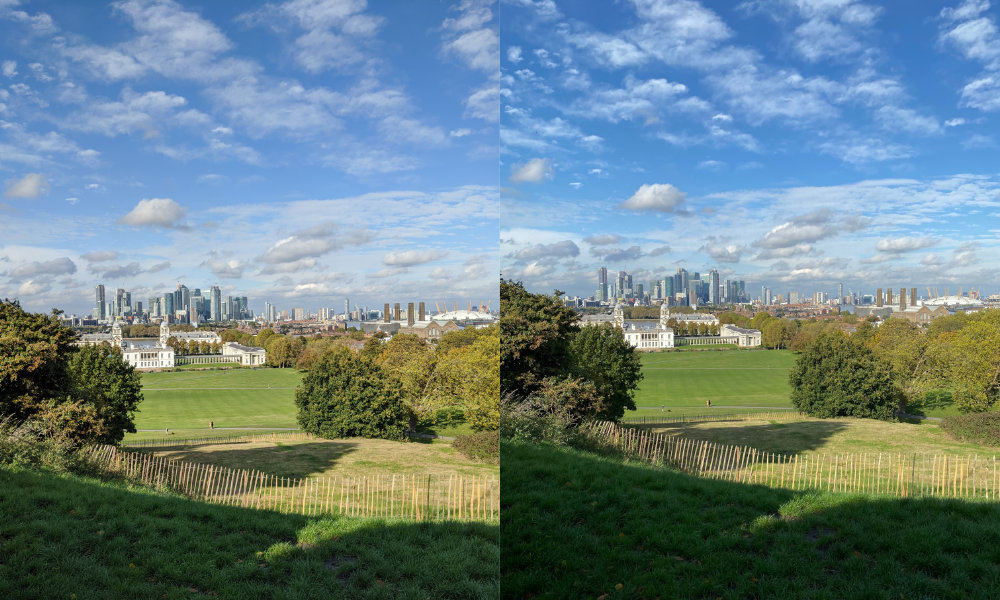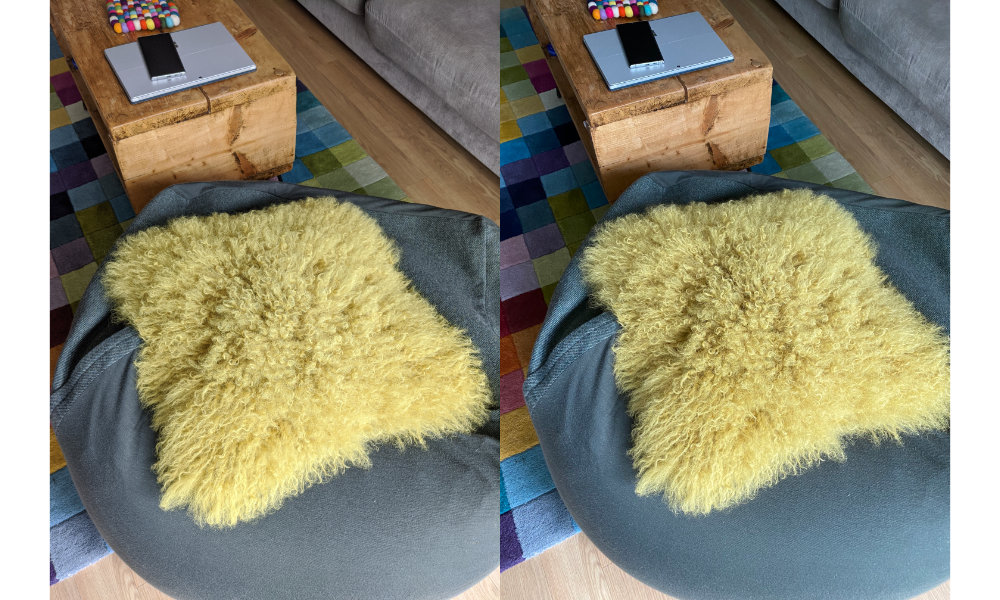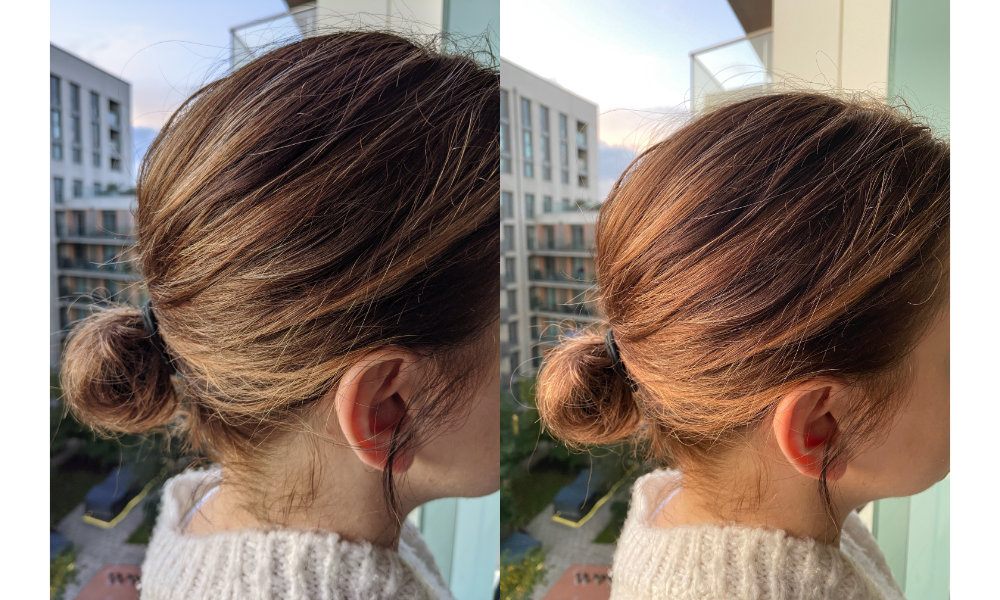Here’s How Google’s Pixel 4 Camera Stacks up Against the iPhone 11 Pro
 Credit: Tom Warren / The Verge
Credit: Tom Warren / The Verge
Toggle Dark Mode
Yesterday Google announced its new Pixel 4 smartphone to much fanfare, and while most of the announcement wasn’t a surprise — it’s been considered one of the worst kept pre-release secrets in modern smartphone history — it’s clear that Google is aiming to take back the crown once held by its predecessor, the Pixel 3, as the best camera on a smartphone.
When Google released its Pixel 3 last year, it not only leapfrogged most of its Android brethren in the camera arena, but gave Apple’s iPhone XS a run for its money as well, although opinions still varied as to which had the better camera, and Apple’s flagship iPhone still boasted an extra telephoto lens that its Google competitor lacked, along with better video recording performance.
The Pixel 3 camera was also very quickly surpassed by other Android competitors such as Huawei and Samsung, but there was little doubt that Apple’s new iPhone 11 Pro was going to set a whole new standard, and with its triple-camera system and advanced computational photography features like Deep Fusion and a much more natural Night Mode, almost everyone who has reviewed the iPhone 11 Pro now agree that it’s the smartphone camera system to beat.
Pixel 4 vs iPhone 11 Pro: The Specs
Much like its predecessor, Google’s Pixel 4 is still short one lens compared to what Apple’s flagship models have to offer. While last year’s Pixel 3 was stuck in the world of a single-lens camera system, this year it’s only gone with a dual-lens system against the iPhone 11 Pro’s triple-lens solution.
The optical specs of the main lenses on both smartphones are fairly similar, featuring approximately 12-megapixel shooters (Google boasts 12.2 megapixels, but that’s a rounding error as far as we’re concerned), and similar apertures of f/1.7 and f/1.8 for the Pixel and iPhone, respectively.
Google’s telephoto does slightly better in resolution, with a 16-megapixel sensor, but only offers an f/2.4 aperture against Apple’s noticeably wider f/2.0. In basic terms, this means the iPhone 11 Pro should be able to get better telephoto shots in darker conditions, but it also likely contributes heavily to Apple’s algorithmic features like Night Mode.
What the Pixel 4 is conspicuously missing, however, is the third ultra-wide shooter, which not only gives the iPhone 11 Pro the practical advantage of being able to take wider group shots and landscapes, but also powers many of its computational photography features, since the extra content from the ultra-wide lens can be used to analyze photos for things like camera shake and put back the missing pieces when rotating a photo.
Pixel 4 vs iPhone 11 Pro: The Shots
Now, only one day after the announcement of Google’s new flagship iPhone, The Verge’s Tom Warren has taken a walk through London with both the iPhone 11 Pro and the Pixel 4 side by side to take some comparison shots.
Warren notes that he took every photo at the same time, with the two phones as close together as possible in order to make the images as identical as possible for comparison. He also avoided any advanced settings or tweaks, simply going with the “automatic” mode in both of the built-in camera apps, which to be fair is how most typical smartphone users are likely to use the cameras.
The iPhone 11 Pro appears to do better in certain low light conditions; although Warren suggested that the Pixel 4 provided more balanced light and less saturation in the photo above, we think the iPhone 11 Pro version looks considerably better, even if it’s less representative of the real setting.
As a rule, the iPhone 11 Pro edged out the Pixel 4 by providing much more detail in a lot of shots like the fluffy yellow cushion above, although Warren notes that the Pixel 4 seems to do better in that area with face and skin detail, which suggests that some computational photography is likely at work here as well, since the iPhone 11 Pro seems to fare better everywhere else.
The Pixel 4 also reportedly provided better colour accuracy, although it leaned toward the warmer tones, opting for higher contrast in most shots, while the iPhone 11 Pro was “consistently more saturated with cooler tones.”
The Pixel 4 also adds a few new camera improvements like Live HDR+, Dual Exposure Controls, and Night Sight with Astrophotography, however Warren specifically didn’t test any of these as his goal was to provide an early quick look at the basic camera capabilities of the new Pixel 4, as well as realistic side-by-side comparisons. He also didn’t compare the explicitly algorithmic features like Night Sight and Night Mode, choosing instead to just focus on standard everyday photography.
There’s no doubt that Google’s made some nice improvements to the camera on its Google Pixel 4 over last year’s model, and while it may have gained some ground on its Android brethren, it definitely doesn’t appear to be a clear winner against the iPhone 11 Pro at this point even for basic casual photography, and that’s not even factoring in the iPhone’s ultra-wide lens and the fact that it still offers superior video recording capabilities — 4K 60fps with extended dynamic range, and the jury is still out on the computational photography features like Googe’s Night Sight vs Apple’s Night Mode and Deep Fusion.
The full report from The Verge contains a bunch more photos, along with a fun slide to compare them side by side, so it’s definitely worth checking out.









